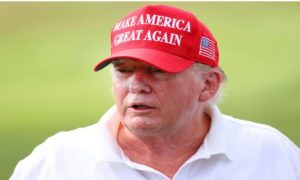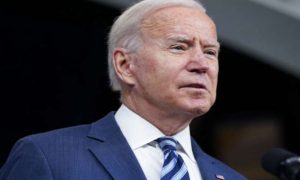Commonwealth Day always leads to introspection over why the voluntary association exists and what it wants to achieve. While we might not invent a Commonwealth of Nations today, it is unhelpful to solely view the bloc as an embarrassing legacy of British colonialism that should wither away. For a start, it ignores the recent trend of countries which were never part of the former British Empire joining or seeking membership.
Also Read– Japan’s Kenzaburo Oe, awarded Nobel for poetic fiction, dies
But it also overlooks its potential as what the Council of Commonwealth Societies chairman Lord Howell described as a “neo-non-aligned” safe space for countries worried about the implications of Russia’s invasion of Ukraine, US dominance and, perhaps most importantly, the growing Chinese threat.
As the Chinese government continues its relentless quest for access to raw materials, technology, know-how and markets via its Belt and Road Initiative (BRI), Beijing has been accused of creating trade and debt dependency in return for diplomatic support at the UN and other international forums.
The Commonwealth’s largest member, India, raised concerns over Chinese military craft docking at Sri Lanka’s Hambantota port, which was leased to a Chinese company for 99 years after the Colombo government could not repay loans from China. This follows the death of Indian soldiers at the disputed India/China border in 2020, more than 40 years after the last fatal border clash.
Read More:-North Korea decides on war deterrence measures, KCNA says
According to Civitas, almost half of China’s Trade Agreements are with Commonwealth members and 42 out of 54 Commonwealth governments have signed a Memorandum of Understanding with China on the BRI. It is no coincidence that the four Commonwealth nations which have consistently voted with the Chinese government on human rights issues at the UN have significant trade deficits with Beijing.
How did we get here? Deng Xiaoping’s economic reforms that allowed agricultural and industrial enterprises to break free from central state control and supervision transformed the performance of the Chinese economy. Paradoxically, he used the economic transformation to strengthen the Chinese Communist Party’s control over Chinese society.
At the same time, Mr Xiaoping strengthened trade and cultural ties with the West and allowed inward investment. In response, Western countries encouraged by its market reforms admitted China to the World Trade Organisation. David Cameron’s government literally rolled out the red carpet for President Xi Jinping 2015 visit, pledging to make the UK Beijing’s “best partner in the West”.
As living standards in China improved, it was hoped a more open China would lead to political liberalisation, like South Korea’s path from military dictatorship to democracy in the 1980s. Not only were these hopes misplaced, but Western countries did not heed warnings that China was filling a political vacuum in global development assistance.
With this in mind, the Commonwealth should not be neglected as it was during our membership of the EU. Post-Brexit, we can refocus the association as a network which allows the UK and allies to exercise soft power to stop countries falling under the influence of China and Russia.
Is this feasible? As the late Queen Elizabeth II acknowledged, the Commonwealth bears “no resemblance to the Empires of the past. It is an entirely new conception… an equal partnership of nations and races”. More than one High Commissioner has told me that their country has gradually set aside the wholly understandable resentment over the British Empire. They support a reinvigorated Commonwealth with the UK as a more engaged partner.
Also Read- 7 dead in shooting at a Jehovah’s Witness hall in Germany
It is true, as Nigerian academic Chuka Stephen Enuka has pointed out, that “wealth is not common among member states”, but we should not ignore its various organisations’ roles in dismantling South African apartheid, anti-corruption measures, seminars on parliamentary process, or economic development assistance to poorer member states.
If the Commonwealth is to prise poorer member states away from the Chinese government’s influence, the UK and other richer members may have to increase development assistance. The real challenge will be the conditions we choose to attach. While Chinese government loans appear to be unconditional, recipient countries increasingly realise the inherent subtle conditions: no relations with Taiwan; use of Chinese labour and resources; dependence on other Chinese organisations; and not opposing China in international forums.
Also Read– Chinese President Xi Jinping issues rare rebuke of US for ‘suppression against us’
Alongside rebuilding good relations with the EU, the UK should also work with Commonwealth partners on issues of mutual interest, rebuilding trust to help the Commonwealth act as a powerful counter to the influence of Russia and China. But reinvigorating the Commonwealth will pose significant challenges and may well cost more money. To those who ask how much will this cost? As with defence spending, which Rishi Sunak has announced he will boost, the answer may be how much more it could cost if we don’t.























